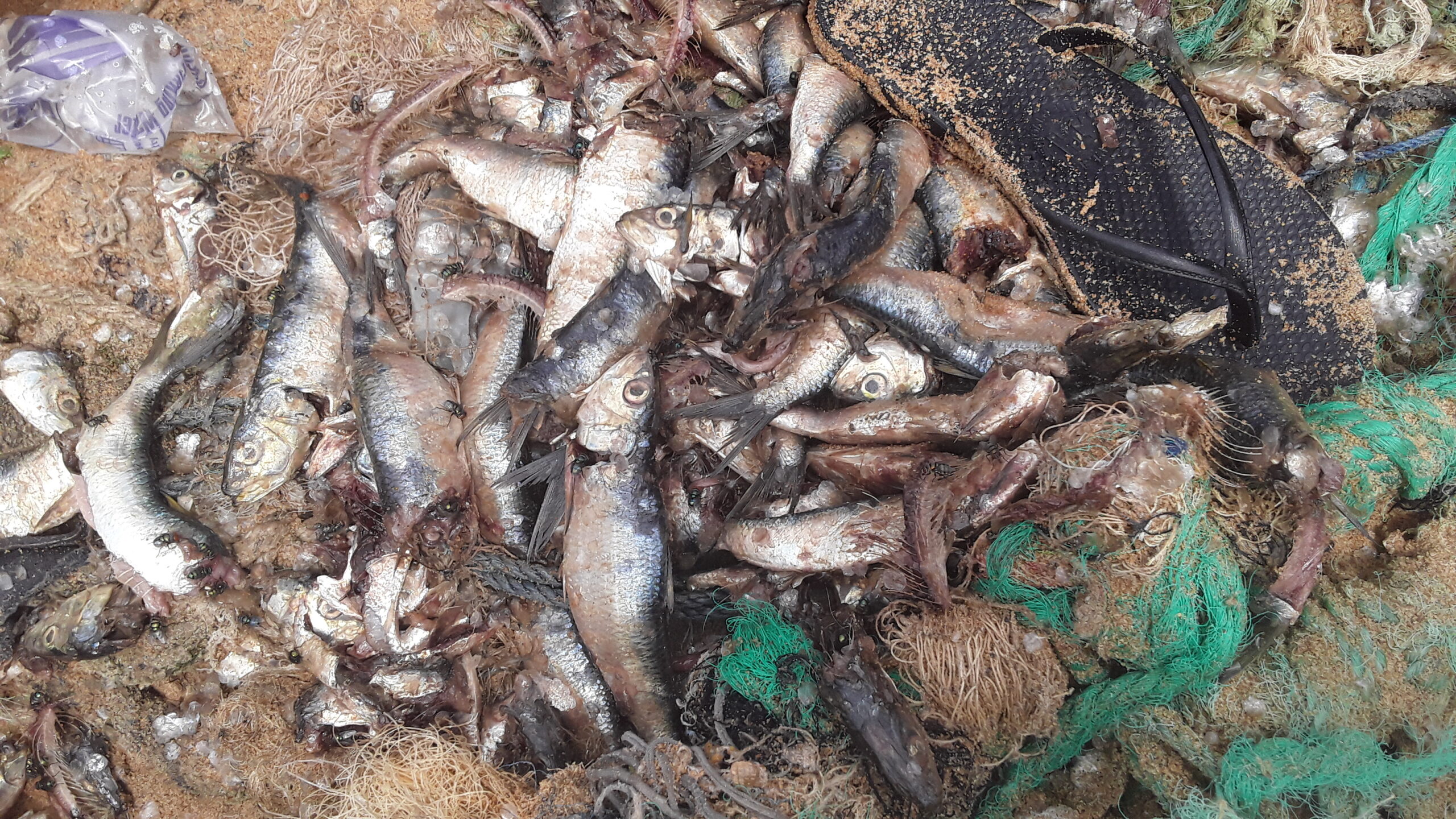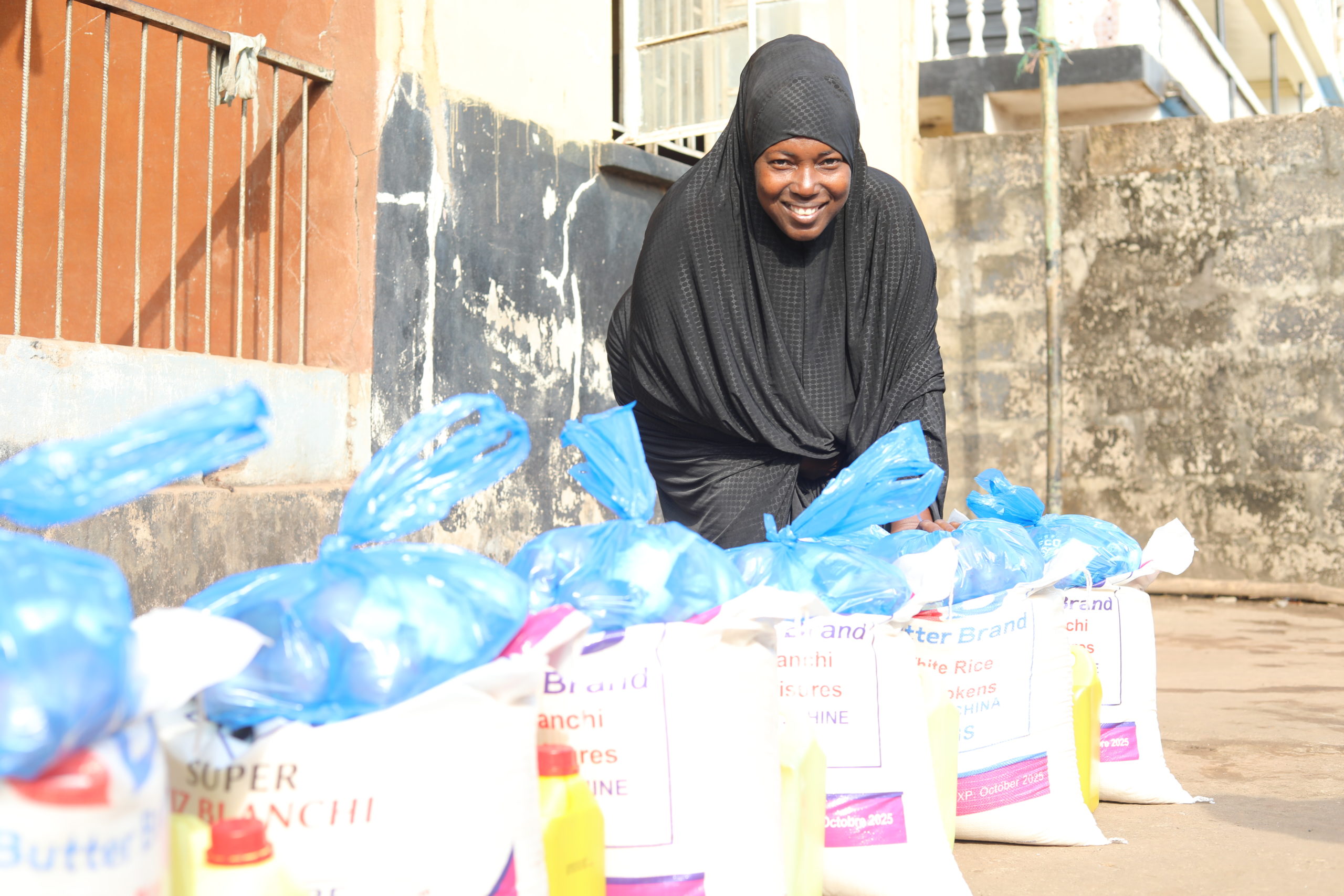Harmful practices that deter the life of the sea species in Sierra Leone

The oceans are blessed with amazing gems and resources that are yet to be explored.
Photo Credit: SDG
According to the World Register of Marine Species, there are now 240,470 accepted species, whereas 91% of the water species are yet to be discovered.
The National Ocean Service states, that there’s around 20 million tons of gold dispersed throughout the oceans, which is diluted pretty much to a pulp, with the concentration of only a few parts per trillion.
However, man’s activities in the environment have affected the lives of species under water in several ways.
Occasional seaweeds along the Aberdeen-Lumley Beach affect the waters in various ways, thus creating a very bad odour and making it uncomfortable for tourists to sit along the beach.
Some people in Sierra Leone have, however, developed the habit of dumping wastes in the waters thus making it difficult for many sea animals to inhabit.
In many slum communities, children have adopted the habit of defecating openly in the waters, largely attributed to poor access to sanitation facilities.

Along the Aberdeen-Lumley Beach (Photo Credit: Eric Kawa)
Mary is a fishmonger at ‘Tambakula’ in Aberdeen; according to her, many of the fishes they buy from fishermen are mostly polluted and some decay along the way, hence they cannot make a profit out of it when selling.
This she said could be attributed to the level and tide of the water.
Kadie sells crabs along the Aberdeen-Lumley beach road, according to her the crab she sells are not affected by any filth dumped into the waters, she believes the salt water does not accommodate any thrash as they send all thrash back to the main land.

Crabs (Photo Credit: Eric Kawa)
Ibrahim is a fisherman, he says many of the fishes decay as a result of inadequate ice cubes,
“When there’s a lot of filth in the water, some of the fishes in the water do move from one place to another. It also impedes their growth”
Addressing the issue of protecting the lives of species underwater is an age-old problem.
Mrs. Yatta Hellen Kamara-Katta is the Wet Lands Manager at the National Protected Area Authority (NPAA). She says, among their key mandates is to complement the efforts of the Ministry of Fisheries in conserving the habitat of the Flora and Fauna (Plants and Animals that live within the water environment).

Fishing Boats at Tambakula (Photo Credit: Eric Kawa)
“We have drafted the Wet Lands Act that will corporate the protection of both the Wildlife and species under water and to regulate and manage the fishing and mining”
We’ve also found out that the extraction of minerals also hampers the survival and the good productivity of life underwater.
She noted that Ballast water is one of the key threats to the lives of animals.
Kamara-Katta stated that they also found out that the Ballast water is believed to have brought the ‘seaweed’.
“The ballast water can invite invasive aliens species that Sierra Leone would not be able to control.” Says Kamara-Katta.
She pointed out that, key among the Challenges they face in Addressing isues affecting species under water, is that communities do not understand the importance of saving the environment of the wet lands.
“In many communities, people involve in cutting the mangrove, sand mining, illegal fishing and encroachment of wetlands which pose threat to the environment,” she said.
Kamara-Katta added that people involved in illegal fishing mostly use plastic fishing nets which tangle and eventually kill sea turtles and other sea animals.

Dead and decayed fish (Photo Credit: Eric Kawa)
She concluded by telling this writer, that they are working with the Ministry of Fisheries, Councils and the National Mineral Agency in order to find ways in tackling the effective management of the threats caused to the environment.
Goal 14 of the Sustainable Development Goals addresses Life Below Water and is aimed at conserving and sustainably use the oceans, seas and marine resources for sustainable development.
More than 3 Billion people are believed to depend on marine and coastal diversity for their livelihoods.
This story was done with support from Media Reform Coordinating Group and Sierra Leone Reporters Union












